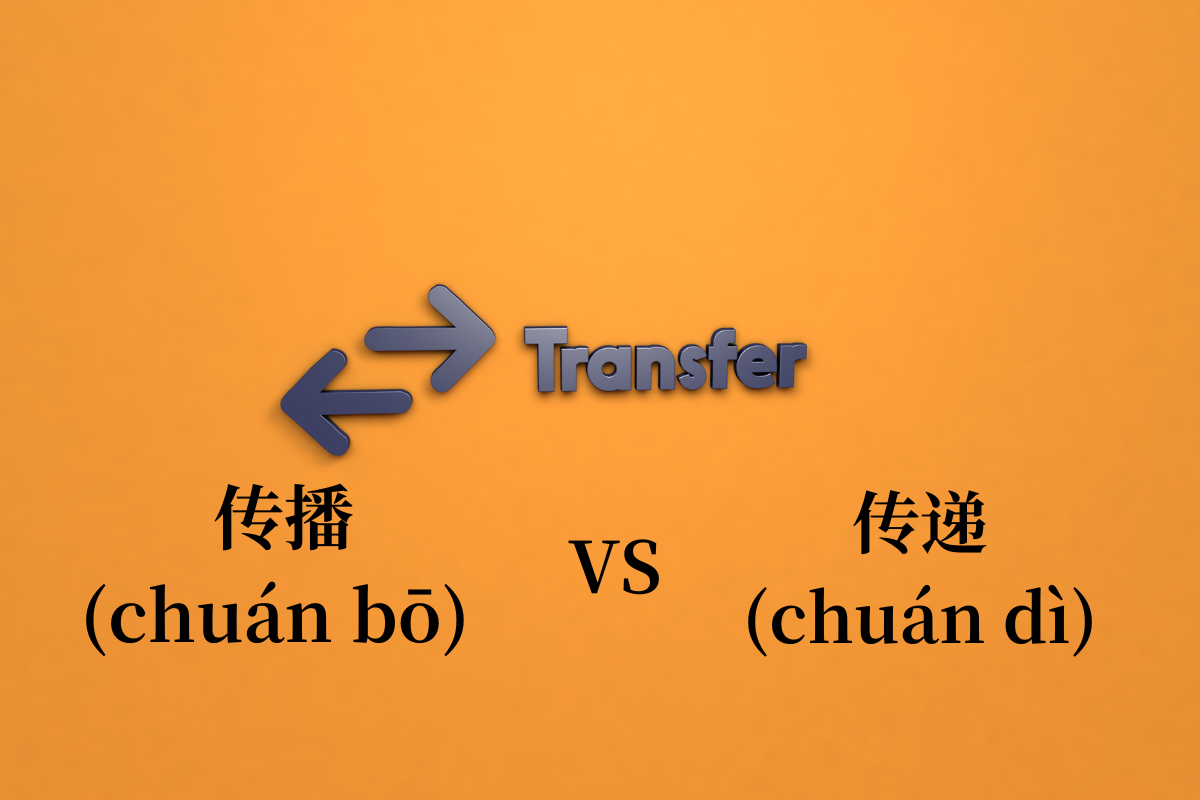HSK 5 Words:传播 (chuán bō) VS 传递 (chuán dì)
In Chinese language learning, the words 传播 (chuán bō) and 传递 (chuán dì) are sometimes mistaken for each other. These two HSK words, though closely related in some contexts, carry distinct nuances that are crucial to understanding their application in various scenarios. This article aims to delve into the subtleties of these two terms, exploring their meanings, usages, and the specific roles they play in Chinese culture and communication.

传播 (chuán bō) primarily refers to the widespread dissemination of information, ideas, or culture from one source to many receivers. It often involves the use of media or other channels to reach a large audience. The focus is on the breadth and scope of the dissemination.
Examples:
- The news of the accident spread quickly through the town.
这起事故的消息很快在镇上传播开来。
zhè qǐ shì gù xiāo xī hěn kuài zài zhèn shàng chuán bō kāi lái。 - The radio station broadcasts local news and music to the surrounding communities.
这家广播电台向周边社区传播本地新闻和音乐。
zhè jiā guǎng bō diàn tái xiàng zhōu biān shè qū chuán bō běn dì xīn wén hé yīn yuè。 - The disease was rapidly transmitted through the population.
这种疾病在人群中迅速传播。
zhè zhǒng jí bìng zài rén qún zhōng xùn sù chuán bō。
On the other hand, 传递 (chuán dì) emphasizes the passing of something, often an object or a message, from one person to another in a direct or sequential manner. It focuses on the transfer of something specific from one individual to another, often within a smaller group or in a more direct context.
Examples:
- His eyes convey determination and self-confidence.
他的眼神中传递着坚定和自信。
tā de yǎn shén zhōng chuán dì zhe jiān dìng hé zì xìn。 - The athletes pass the strength of the team through relay batons.
运动员们通过接力棒传递着团队的力量。
yùn dòng yuán men tōng guò jiē lì bàng chuán dì zhe tuán duì de lì liàng。 - She whispered a secret message to her friend.
她低声向朋友传递了一个秘密信息。
tā dī shēng xiàng péng yǒu chuán dì le yí gè mì mì xìn xī。
In summary, 传播 (chuán bō) and 传递 (chuán dì) are two distinct words in Chinese. 传播 (chuán bō) refers to the widespread dissemination of information or culture, often through media or other channels, whereas 传递(chuán dì) emphasizes the direct or sequential passing of something specific from one individual to another. Understanding the specific meanings of these words and their appropriate usage can greatly enhance your Chinese language proficiency and communication skills.
Quiz: Please determine whether to use 传播 (chuán bō) or 传递 (chuán dì) in the following sentences.
- 这个重要的信息需要通过媒体广泛______。
zhè gè zhòng yào de xìn xī xū yào tōng guò méi tǐ guǎng fàn ______。 - 他把这份文件______给了他的同事。
tā bǎ zhè fèn wén jiàn ______ gěi le tā de tóng shì。 - 在接力比赛中,每个队员都需要将接力棒准确地______给下一个队员。
zài jiē lì bǐ sài zhōng, měi gè duì yuán dōu xū yào jiāng jiē lì bàng zhǔn què dì ______ gěi xià yí gè duì yuán。
Answers:
- 传播 (chuán bō)
- 传递 (chuán dì)
- 传递 (chuán dì)